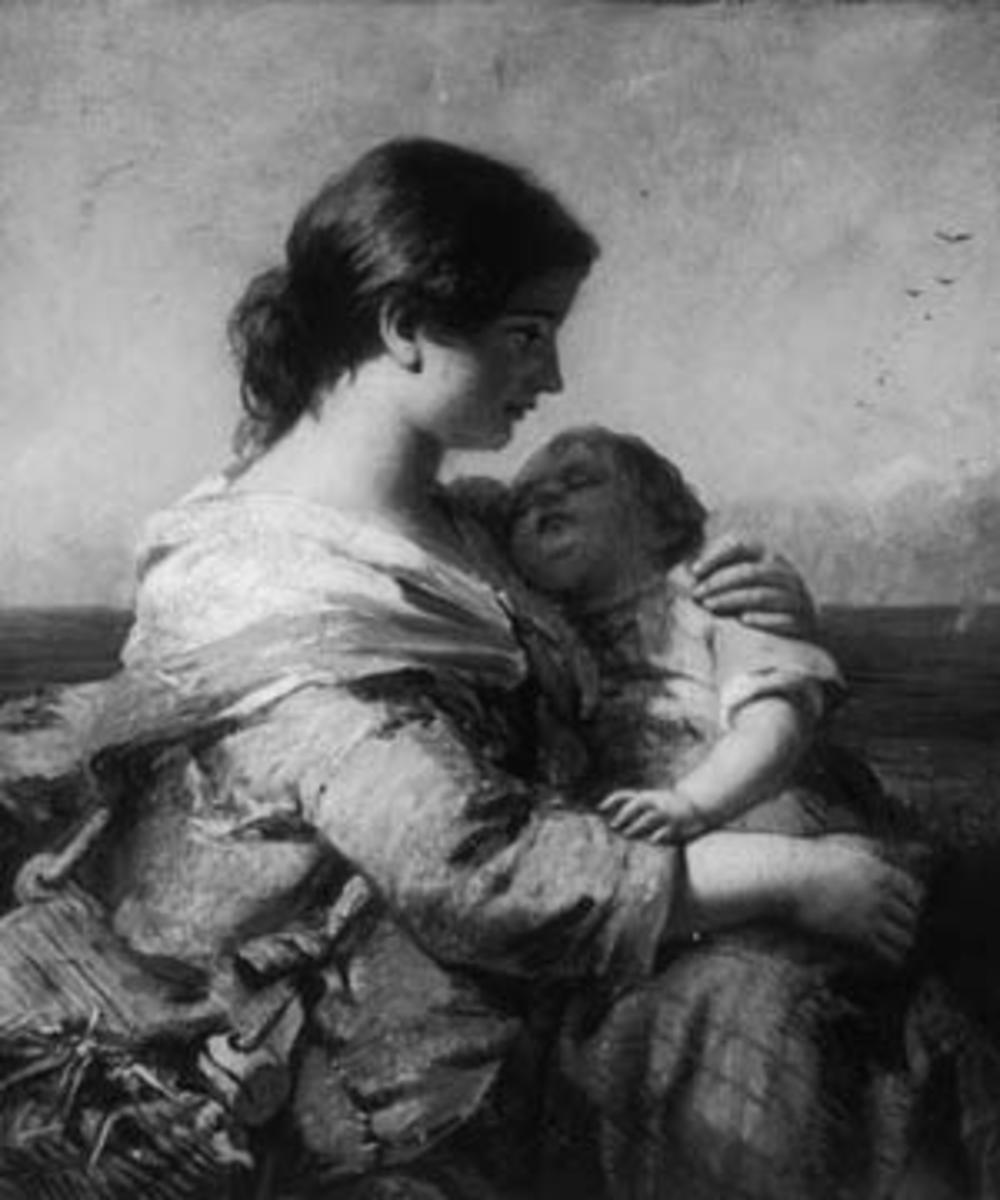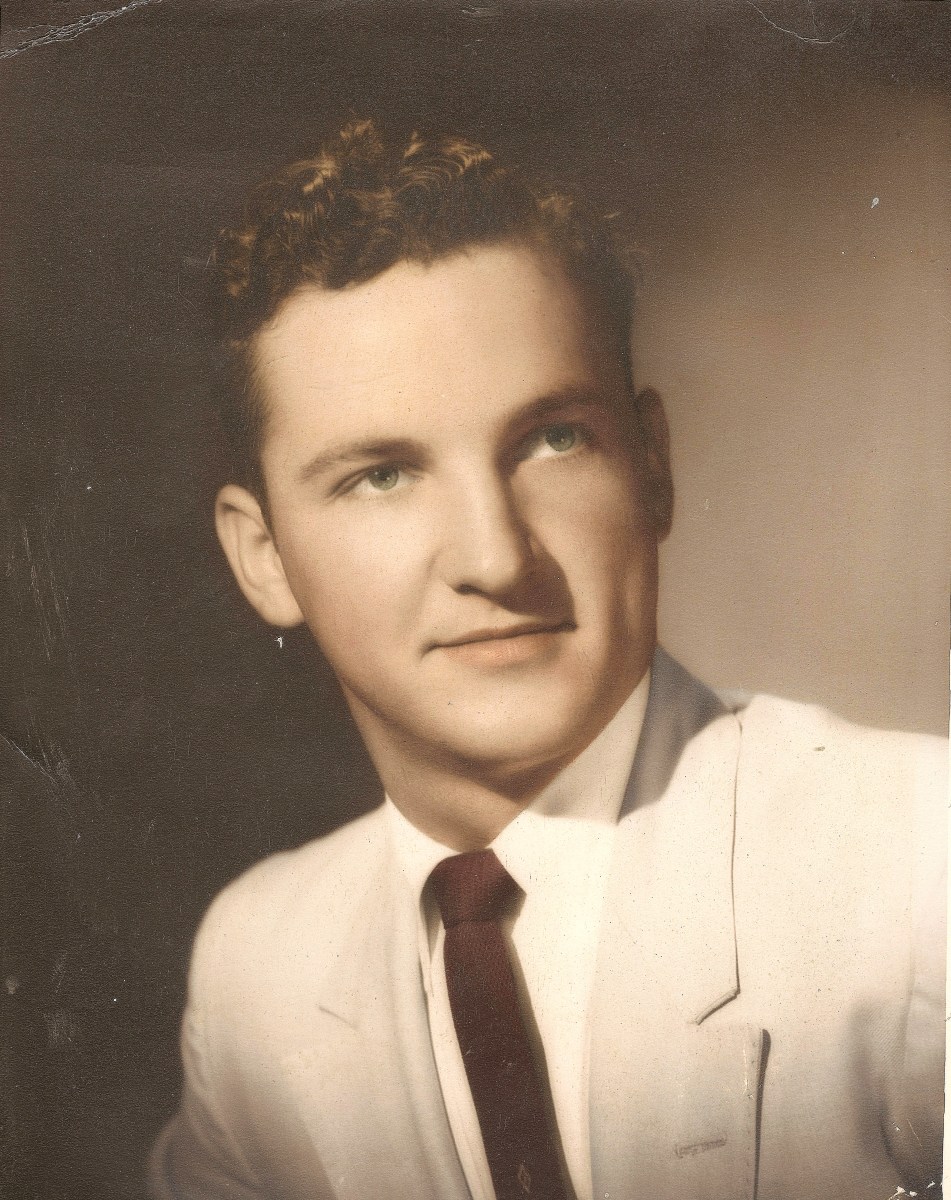- HubPages»
- Home and Garden»
- Home Furnishings»
- Bedding & Linens
One for Daddy-O
Once upon a time
there lived a boy who had moved away from the country of his birth to an adjacent country. Here he lived with his mother and his father who, strangely enough, was always dressed in uniform.
The boy retained no memories from his first country, save one perhaps — but even this one he could not be certain about, since it seemed to him that he would have been too young to fulfill the events of this memory as it was about a special bicycle trip he had wished to make to another country with a group of boys who had joined a youth club.
But the memory, whether true or imagined, refused to go away, especially since one detail was definitely true: he was refused entry to the club by virtue of having a girl's bicycle.
The memory of this bicycle could not be challenged since it was linked to many other memories, like the time the boy careened into the side of an oncoming car engraving a large gash into the vehicle while flipping over and landing on his temple blazoning a scar the size of a quarter.
It was the boy's uniformed father who forbade him to make the trip across the sea to this island country which caused a lot of ill will between the boy and his father, especially since his father was rarely home, and even when he was home, he wasn't really there since he was in uniform.
The boy once asked his mother about this to which his mother replied: 'Oh, don't you know dear (why your father is absent)? Why he's a ghost!'
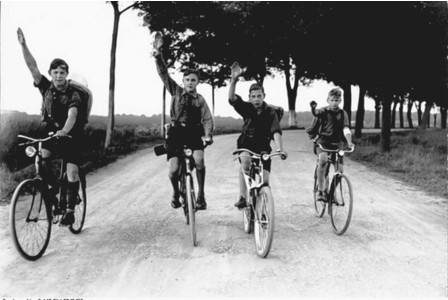
So the boy remained
content to play at home and ride his girl's bike around the block where he would be less prone to soliciting mockery. But as bad luck would have it, his father was called away for a long period on serious business without having been heard of until one day he phoned to relay an urgent message to his wife. Apparently a war was brewing and they would soon have to face great danger, so the father counseled in a frantic tone, that when the enemy (from the boy's native country) reached a certain point inside the borders of their new adoptive country, they were to decamp immediately grabbing their ready-made baggage and high tailing it to the train station in the center of town. From there they were to go north and grab a ferryboat to the same island country of the 'dream-memory.'
And so it came to pass, that indeed when the enemy had crossed the border and driven into that region talked about by his father, the mother and the boy quickly skirted to the train station leaving behind their big old manor house on the outskirts of the metropolis for the center of a town which was reputed to be the most beautiful in the world but which the boy had seen only once before. On this day he would not have much time to admire his adopted city, rushing as they did to catch the last train north.
From the coast they caught a ferryboat to the other side of the sea and from there yet another train to another metropolis in this island country where the boy's mother's family lived. Here they settled into a small apartment in the center of the metropolis nearby his mother's work place which was located in a big red building. On occasion they would visit his mother's sister and her husband on the south west coast of the country.
But soon, for the safety of the boy, he was permanently moved to live with his uncle and aunt while the mother stayed behind to work in the red building requisitioned for the war effort. But as bad luck would have it, his mother's residence was bombed and all the inhabitants were killed. From this day on, the boy stopped growing and his voice remained unchanged. He refused to do any schooling at home or to help his uncle in the war effort at a nearby military base.
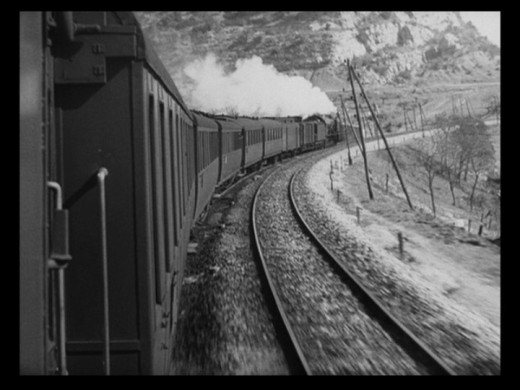
In a few years
the war had ended and shortly afterwards his uncle passed away, forcing his aunt to go to work. Since the boy's life had been interrupted many times he fell so behind in his schooling and in his mastery of the local language that he had no aptitude for school. As his aunt could not leave behind such a young boy alone, she took him to work, like her, as a steward on the train from the coast to the metropolis.
The young boy fit in well with the staff and the passengers. Then one day his aunt took ill and had to be hospitalised. The boy went to work alone — everyone now having forgotten that he was, technically, under the legal working age.
One day, the boy entered with his mobile serving tray into a private coach, in which an old chubby man with a ring of silvery grey around his shiny head dressed in a bespoke three-piece suit was slumped over asleep. The boy offered him coffee in a loud voice, but the elderly man did not respond. As the boy neared the passenger, he noticed that the old man was slumped over a brief case with his right hand trapped inside. An odd position the boy thought. He nudged the old man and repeated his offer of coffee but the old man again showed no sign of receptivity. The boy nudged harder, pulled the old man up a little and noticed no sign of life. He pulled the old man's hand out of the brief case to take a pulse, all the while noticing the case was full of large bills and three small plastic vials.
The boy felt no pulse. He removed and hid the case under his tray and left the cabin mentioning nothing to the staff. He discretely took the money home and at the right moment when his aunt was discharged from the hospital, he paid her bill himself, surprising her. She suspected that her sister must have transferred some money privately to the boy before she died.
The aunt returned to work but only for a short while, as her health was compromised thereafter, and not long after her discharge she died also.
The boy distraught from loneliness, left this — his third country of residence — and made his way back to his manor house in search of his father of whom he had no news since that ominous phone call that prepared his exodus from his second nation.
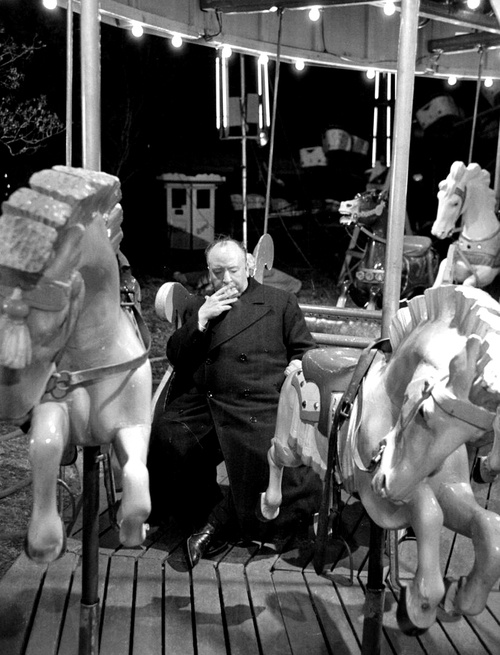
Going back the way he had arrived
via train, ferryboat and train again to that most beautiful metropolis in the world, the boy neared his manor house on the outskirts of town. Here, the property had become dilapidated: the lawn unkempt and the perimeter wall in ruin in several places.
The boy walked up to the front door and flung the knocker. He could hear someone walking on the creaky floor inside. A large lethargic black man swung open the great door...
The boy explained how he had lived there up to the start of the war. How he was returning in the hope of finding his father...
The big black man — an American — invited him in. They sat and talked each explaining their business there. The American had been invited to retire at the manor house by a patron of his music whose family foundation was now the owner of the house. The black man lived there alone and he appeared, like the boy, to have few friends. This was because all his friends had either returned to America or died from drug overdose. The black American explained that he was a jazz musician who had known some fame long ago, before jazz became an industry. His patroness, who was from a wealthy family, had been his admirer and manager for a long time.
'But' he added, 'if indeed this house is rightly yours and it reverts back to your family, then I will relinquish it to you. You may stay here for as long as it takes to sort this thing out,' he said to the boy, not disclosing that he had only six months to live with his terminal cancer.
The boy, so intrigued by this unusually gentle giant from black America replied: 'Even if this house reverts back to my "father," you are welcome to stay — the house is far too large for one person.' And here the two struck up a friendship, especially when the boy heard the black man's tiny records and then heard him play his trumpet. The boy became his protégé and in this way the dying musician found an heir for his life's work that now stood a chance of being recorded for posterity one day.
In the six months that followed the boy started to grow again, he remembered the native language of his first country and his voice changed from a young boy to a man...He also filled the shoes of the big American trumpeter and went on to honour his legacy by spreading his long forgotten music.

